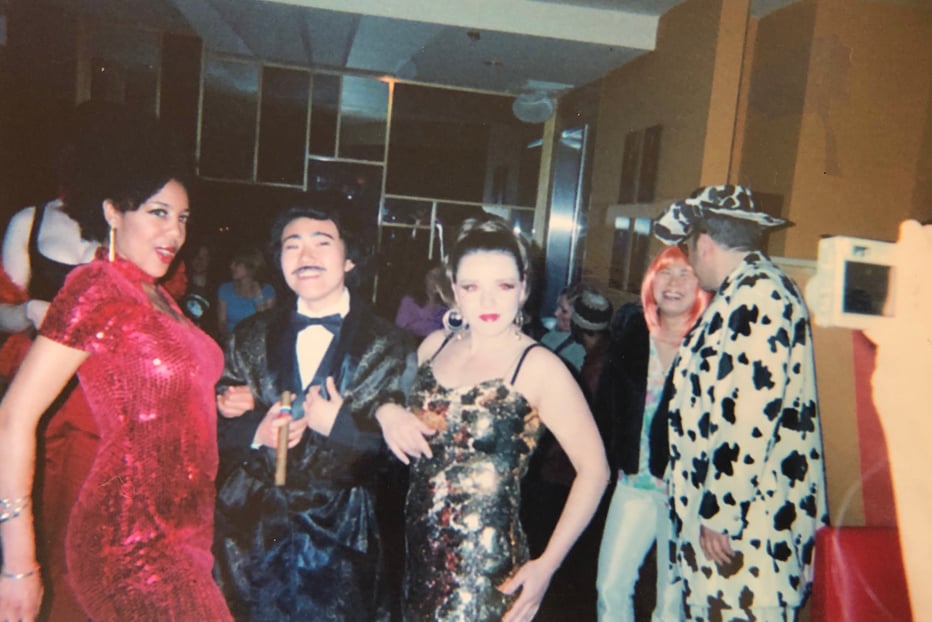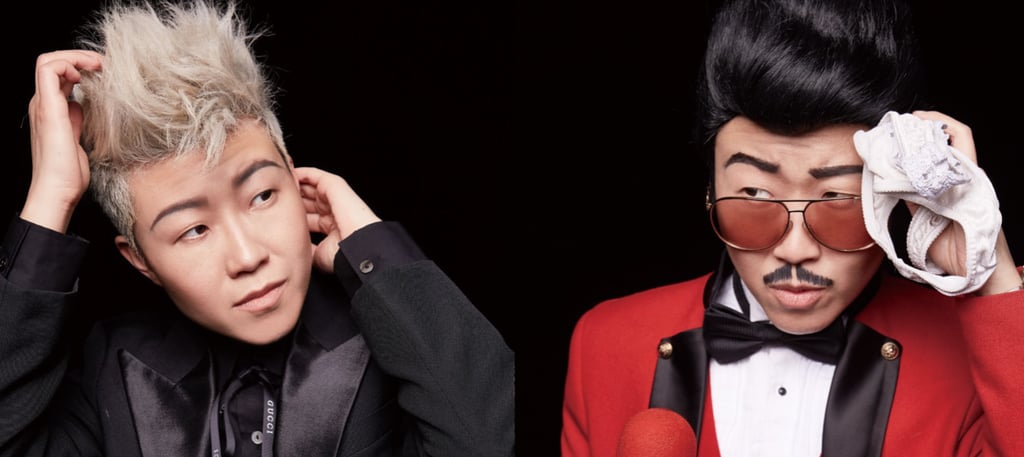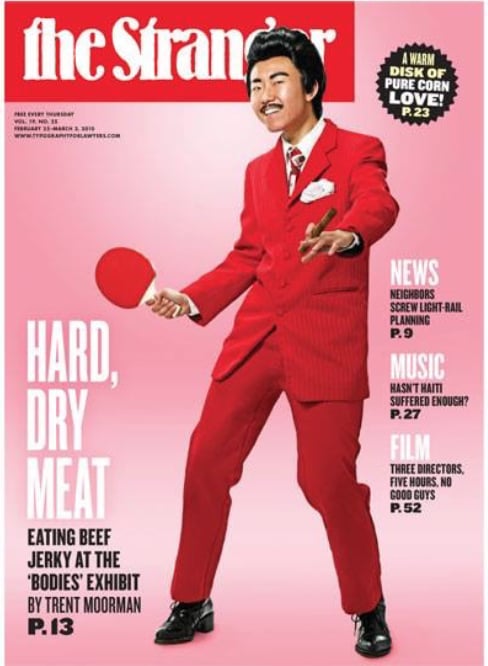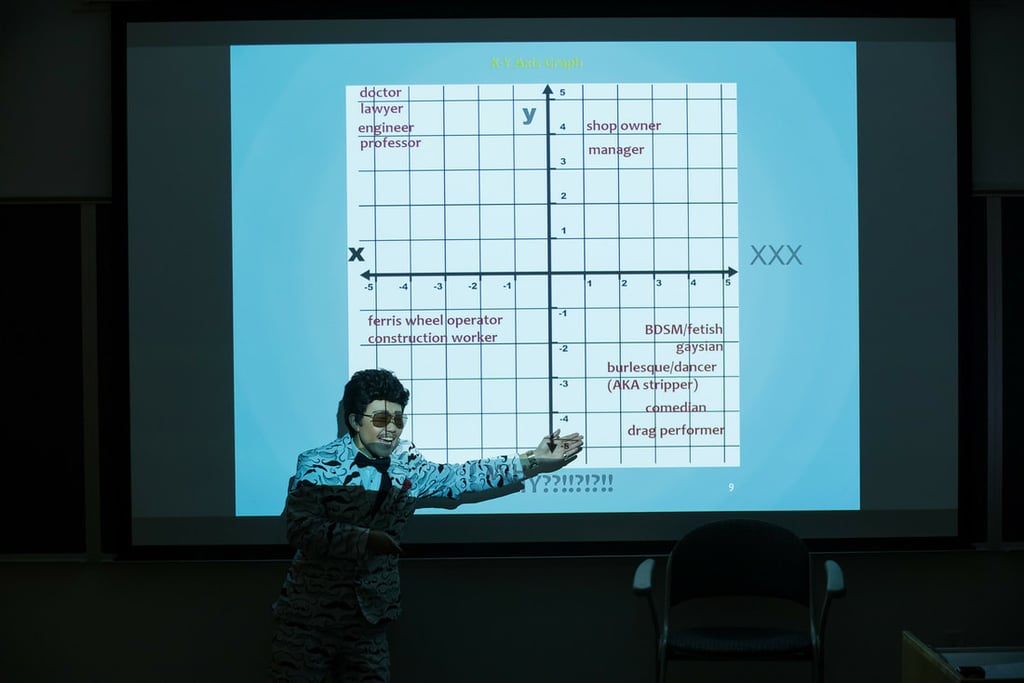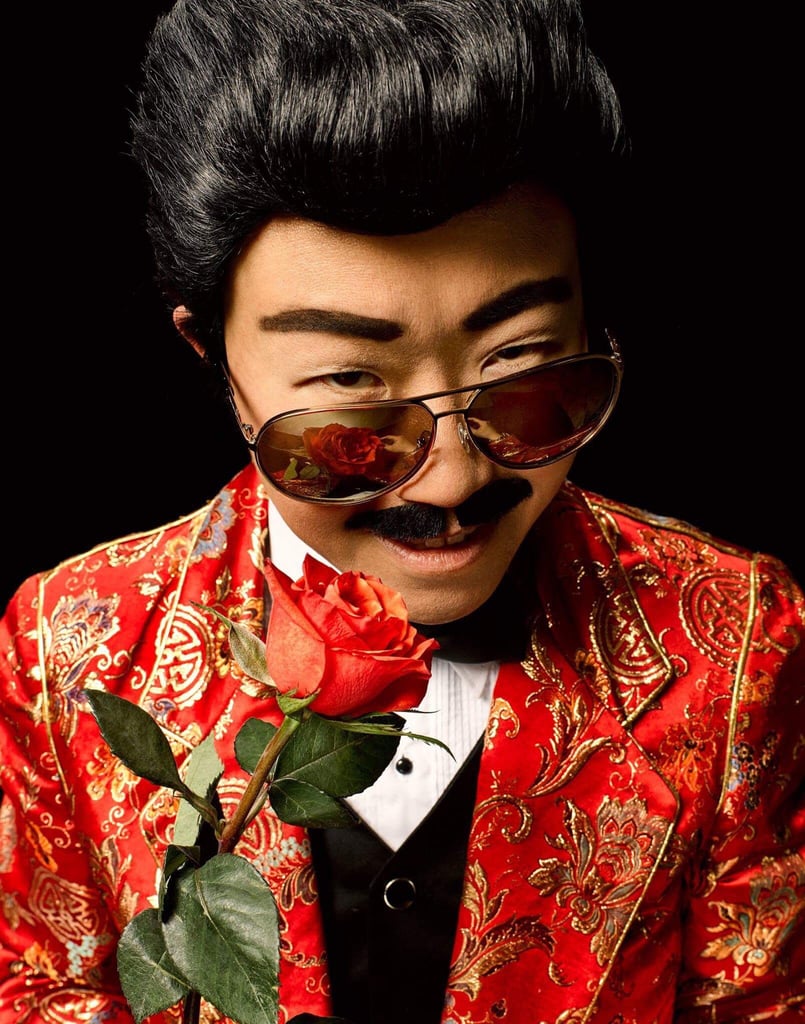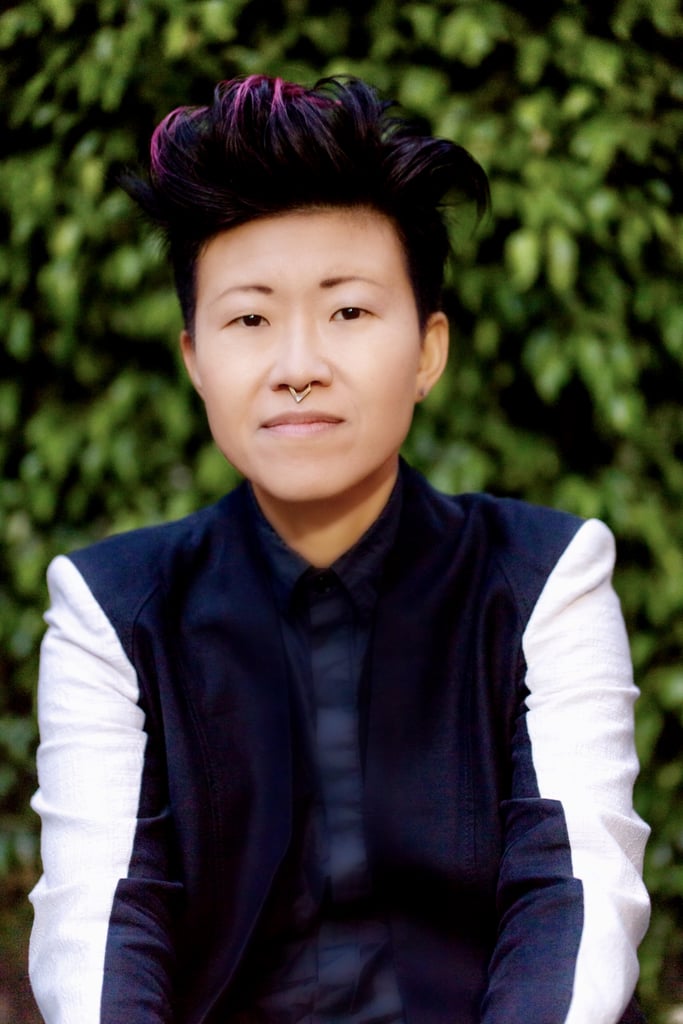Wang Newton — named Mei-yin at birth — is a New York City-based drag king [1] and entertainer and one of the few in the drag community [2] of Asian-American background. The following story was told to Kelsey Castañon and edited for length and clarity.
I was born in Taiwan and grew up mostly in the Midwest and central Pennsylvania after 5 years of age. As a queer person assigned female at birth (AFAB), I can't say it was fun to live in small-town America under a roof of traditional Chinese culture. You are consistently being told that children should not talk back to parents, even if only to correct a fallacy happening at the moment. Boys are expected to carry the family name. The culture teaches AFABs to be shy and conservative.
I enjoyed my feminine fashion and presentation [3]. To be honest, I was not consciously trying to explore my masculinity [4]. That doesn't mean I did not do it subconsciously. This, to me, is what a journey can be like for anyone growing up in an environment not aware of artistic or diverse possibilities of life.
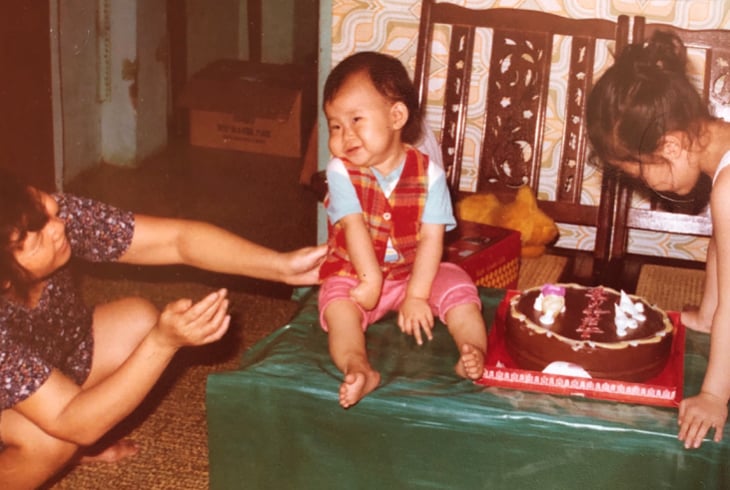
While I jest, the phrase "I didn't choose the drag life [5], the drag life chose me" holds true for me. When I was 19, I was on a European cruise with neighbours and won a bottle of bubbly for lip-syncing to "New York, New York" in a three-piece suit. Years later, I was supposed to be an extra in an unknown indie film as "Cambodian Village Woman," but suddenly they had me playing a Khmer Rouge soldier, and the director chose to zoom in. I didn't even know I was doing drag — I just kept getting rewarded when impersonating a man.
This was in the early days of my gender and sexuality exploration, so dressing in traditional male clothes once was all it took for me to enjoy acting.
The Birth of "Wang Newton"
In 2004, a friend had a birthday party around Halloween [6] and requested we all dress in a wig and black clothing. At that time, I was sitting in a cubicle, bored at my office job. I recall my brain piecing a few things together: I didn't want to spend much money. My nickname was "Wang." I already owned a tuxedo and dildo. OK, just buy a wig and mustache and print lyrics to "Danke Schoen" for epic duets — Wang Newton it is!
It was not just my masculine being repressed, but rather a lifetime of dormant artistic expression and sense of humour, now within a newly emerged queer-as-f*ck body. Ta-da.
Turning "Drag King" Into a Career
I kept getting asked to appear as Wang Newton at parties. Each time I kept thinking, "This is weird, but OK, fine." Mostly because I did not grow up listening to Wayne Newton and I was also not previously exposed to drag kings. There are much more Western culture coming-out stories of "my parents accept me and love me unconditionally." There are very few happy stories I hear from Asian cultures [7] — most contain shame, disgracing the family, staying in the closet, general repression, to negative backlash in the coming-out process.
It took me a few years to get used to this wild masculine emergence. I hid Wang from coworkers and from family for a year or two. Keep in mind this is in 2004, before social media or RuPaul's Drag Race [8]. While Wang, the persona, looked a hot mess, my friends always knew me as a silly queer forever turning looks. They accepted me.
But the gut feeling was beyond strong, and I'm glad I allowed myself to be pulled forth. By Christmas, I felt it was time to be paid — not out of arrogance, but because I was already a club promoter with a following.
The Gap of Asian Representation in King Culture
Taiwanese drag queens are really active, but I'm the predominant drag king who is Asian. I was once ashamed and guilt-ridden by that. I did feel isolated at that time in my life, when I looked around to see that there were no other kings of Asian descent prior to social media popularity, nor many other kings period. Admittedly, I looked to the outside for comparison and approval during my younger years.
"I did feel isolated at that time in my life, when I looked around to see that there were no other kings of Asian descent prior to social media popularity, nor many other kings period."
I travel internationally to host events, and what I've learned is that the world of drag is unlike NYC or LA — perhaps many in these metropolitan cities are of Third Culture identity [9] (people who are born to one culture, grew up in another dominant culture, and are influenced greatly from international travel). Most places feel like it has less than two kings at any one time. The only other cities I have been to with a thriving king culture is Berlin, thanks in part to drag queen Pansy [10], who is quite active and provides a safe space for all, and Manchester, UK.
Last year, I went to Taiwan three times and asked, "Where are the drag kings?" — which is something I tend to do in each city I travel — and when the answer was zero, I outreached further. Turns out, Shanghai Pride celebrations have been going on for about 10 years, and they have never seen another king performer of Asian descent. Eventually, I found others via social media, as a couple of us actively started asking around. There are approximately 20 in the world thus far. Perhaps, since most of us are of mixed heritage or not first-generation Asian, this gathering did not feel monumental.
I do not feel proud to be the only Taiwanese or the most prominent Asian king — I am simply proud to be me. I am proud of the strength and consistent commitment it took to liberate myself. It took hard work and much self-inquiry to transform the conditioning that has never served me. I no longer feel repressed nor ashamed.
Wang Newton's Hope For the Future
If RuPaul was a trailblazer in the '80s and '90s, then I dream that other drag creatures will do the same in their own way. For better or worse, the commercialisation of drag queens [11] has happened. It broke through to the mainstream, and it's up to other stars to shine. The path has been carved, and we are not obligated to go down the exact path — there is plenty of talent available when we instead believe there is no roof. Inclusive means all body types, ethnicities, genders, sexuality expressions, and so on.
Speaking up and sharing my story is a privilege that few in Asia get to do. I write a Point of View column for Taiwan's LEZS Magazine and occasionally interview other artists. I'm also so grateful to collaborate with Brice Brown, founder of Milton Art Bank. Together we have produced Kong: king-centric shows that include drag queens and burlesque.
"I'm proud to document this world journey each step of the way — all while boldly wearing a strap-on under my pants."
I used to not understand my own expression through the Wang persona, but I have worked hard to save money and travel. This is my way of learning new ways of living and sharing aspects my heritage and drag king culture at the same time. I'm proud to document this world journey each step of the way — all while boldly wearing a strap-on under my pants.

